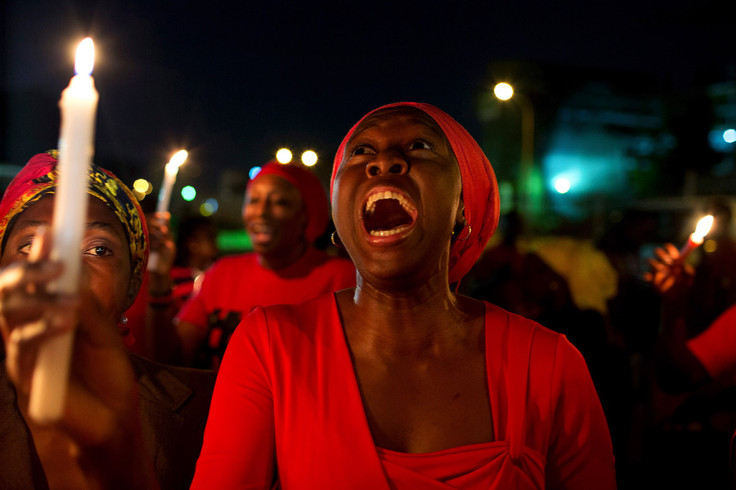Nigeria Boko Haram Kidnappings Four Months On: Will the Chibok Girls Ever be Found?

Four months ago Nigerian terror group Boko Haram kidnapped 220 schoolgirls in Chibok, Borno State.
The mass kidnapping caught the attention of the international media, prompting prominent politicians and celebrities to publicly condemn the abduction.
Hundreds of people joined the Twitter campaign #BringBackourGirls to raise awareness of the issue while countries such as the Britain, France and the US joined Nigerian troops in the search.
However, despite such efforts, the girls have never been found.
Government's lack of effort
Although Nigeria's President Goodluck Jonathan vowed he would fight the insurgents and find the girls, he has been accused several times of not doing enough to combat terrorism in the country.
Nigeria's former President Olusegun Obasanjo expressed his frustration at the inadequate negotiations between the government and the terrorists.
His comment came as Boko Haram asked for the release of some prisoners in exchange for the girls,but President Goodluck Jonathan rejected the exchange deal.
Obasanjo has also said "some of the girls will never return. Only those that would later get pregnant and the sect members would find it difficult to cater for the babies in the forest might be released."
Meanwhile, reports have emerged that the girls were being smuggled toCameroon and Chad and being sold as brides to militants for 2,000 naira ( £7), while others were used as suicide bombers.
Boko Haram's power is growing
Since the mass kidnapping has highlighted the problem of terrorism in Nigeria, Boko Haram's power has noticeably increased.
Human Rights Watch said in August that Boko Haram has killed at least 2,053 people since the beginning of 2014.
Hundreds more civilians have also been kidnapped since last April, including some 100 boys and men in a remote town in Borno State, believed to have been kidnapped to fight for the group.
The militants are gaining more and more swathes of land in Nigeria. After declaring an Islamic caliphate in the town of Gwoza, near the border with Cameroon, the group raided several towns in northern Nigeria, where three states – Borno, Yobe and Adamawa - have been under a state of emergency since May due to Boko Haram's increasing violence.
According to the UN, at least 1.5 million people have fled their homes since last year due to the violent insurgence, and Western intelligence agencies recently warned thatthe militants are now seeking to tighten their relationship with terror group Isis -- now known as the Islamic State – which is giving them advice on strategy and tactics to expand the Islamic caliphate in north-eastern Nigeria.
Nigerian government has often failed to prevent Boko Haram from killing and abducting hundreds of civilians.
As journalist Clayton Sharb points out, there are two major problems that slow down any counter-insurgency efforts.
"The first is the lack of quality intelligence on the militant group. Very little is truly known about Boko Haram," Sharb said.
"Another reason the people of Nigeria are growing restless. The counter-insurgency has failed because of the limited capabilities of the Nigerian military".
Although some 59 terrorists were recently killed by Nigerian troops - which also managed to retake the town of Bama, captured by the insurgents in August - Boko Haram's insurgence is becoming more violent and more threatening and if the government fails to adequately counter-attack the militants, the Chibok girls – and not only them - will never be found.
© Copyright IBTimes 2025. All rights reserved.






















